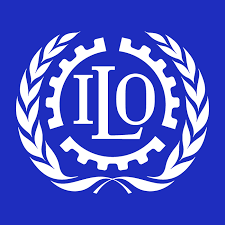
Introduction
Founded in 1919 in the aftermath of World War I, the International Labor Organization (ILO) stands as a testament to the global commitment towards improving labor standards and promoting fair and decent working conditions. This essay explores the formation, purpose, and the ongoing work of the ILO in its quest to champion the rights of workers worldwide.
Formation and Historical Context
The ILO was established as part of the Treaty of Versailles, which ended World War I. The organization emerged from the ruins of a world grappling with the harsh realities of industrial labor and the need for international cooperation to address these challenges. Recognizing that universal and lasting peace can only be accomplished if it is based on social justice, the ILO was formed as a unique tripartite U.N. agency, bringing together governments, employers, and workers’ representatives from its member states.
Purpose and Objectives
The primary purpose of the ILO is to promote rights at work, encourage decent employment opportunities, enhance social protection, and strengthen dialogue on work-related issues. The organization’s founding principle, that “labor is not a commodity,” underscores its commitment to ensuring that workers are treated with dignity and respect, not just as economic instruments. Over the years, the ILO has been instrumental in drafting and enforcing international labor standards and conventions that address a wide range of issues, including working hours, health and safety, and fair wages.
Work and Achievements
The ILO’s work has been multifaceted and impactful. It has set international labor standards through conventions and recommendations that its member countries adopt and implement. These standards cover a broad spectrum of labor issues, including child labor, forced labor, occupational safety and health, and the right to organize and bargain collectively. The ILO also provides technical assistance and training to develop national labor laws and create better working conditions.
One of the significant achievements of the ILO is its Declaration on Fundamental Principles and Rights at Work, adopted in 1998, which commits member states to respect and promote principles and rights in four categories, regardless of their level of economic development. Additionally, the ILO’s decent work agenda, launched in 1999, integrates a strategic approach to achieving sustainable development and social justice in the global economy.
Challenges and Future Directions
Despite its successes, the ILO faces ongoing challenges such as the rise of the gig economy, informal labor sectors, and the ever-changing landscape of the global workforce. The organization continues to evolve, addressing emerging issues like climate change, globalization, and the future of work.
Conclusion
The International Labor Organization has been a cornerstone in the development of labor standards and the advocacy for workers’ rights globally. As it moves forward, the ILO’s role remains crucial in navigating the complexities of the 21st-century labor market, ensuring that progress and development are anchored in social justice and decent work for all. Its ongoing mission to promote dignity, fairness, and equality in the workplace is more important than ever in a rapidly changing world.

